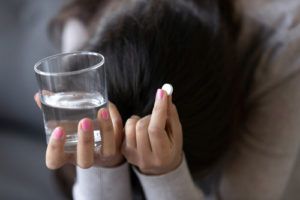With a growing awareness of the unique struggles faced by LGBTQ individuals, particularly in terms of mental health and substance abuse, many drug rehab centers are taking steps to reach this demographic.
Many rehabs are working to ensure they’re equipped to provide quality programs and support to this large and often vulnerable population.
The LGBTQ Experience
The lesbian, gay, bisexual, transgender, queer, and questioning (LGBTQ) community has long faced discrimination and abuse. Many LGBTQ individuals have encountered painful hardships that have included cruelty from society and sometimes from their own family and friends.
They may have been subjected to unfair (sometimes illegal) treatment in job and school settings. Some have been refused service by businesses or received care that treated their LGBTQ self-identification as a “problem” needing to be fixed.
All these issues may factor into the well-documented disparity in LGBTQ mental health. LGBTQ individuals are three times more likely than non-LGBTQ individuals to experience a mental health condition, and they are more likely to struggle with substance abuse as well as suicidal thoughts.
Addiction and the LGBTQ Community
Those who self-identify as LGBTQ may face additional struggles on their road to recovery. Not all treatment centers are LGBTQ-friendly. Some may refuse LGBTQ clients while others may discriminate against LGBTQ individuals in treatment, sometimes unwittingly. Still, others may simply not be equipped to address the unique issues that this population faces in recovery.
These concerns can make it even more difficult for an LGBTQ individual with a substance use disorder (SUD) to begin a treatment program.

Often, a person with a drug dependency will have anxiety about entering a residential drug treatment center. The thought of going through withdrawal and then working through intensive
therapy to deal with entrenched issues and behavioral patterns can be intimidating, even when the alternative is a harrowing drug or substance addiction.
An LGBTQ individual has to deal with these standard worries as well as additional anxieties. Will the treatment center and therapist truly be LGBTQ-friendly? Will they be the only LGBTQ individual in treatment? Will others in treatment be accepting of their lifestyle?
LGBTQ-Friendly Treatment Centers
Today, many treatment centers are LGBTQ-friendly. While many advertise themselves as LGBTQ-friendly, some of these treatment centers offer no specialized programs for LGBTQ clients. They simply accept LGBTQ clients into their regular programs.
Because of the high rates of LGBTQ discrimination, and the degree to which biases and judgment may be present in the general population, a higher standard of care may be necessary.
Consider Asking These Questions of an LGBTQ-Friendly Center:
- Has the staff been trained in LGBTQ-specific care and therapy?
- What kind of LGBTQ-specific programs are offered?
- What kind of experience does the program have with LGBTQ individuals?
- Is there an LGBTQ community at the treatment center?
- Do any of the staff self-identify as LGBTQ?
- What are the housing accommodations for LGBTQ individuals?
- Are other individuals in treatment LGBTQ-friendly?
Many treatment centers accept LGBTQ clients, but to treat this population adequately, the center must create a safe space for individuals who identify as LGBTQ. This means a space in which an individual can safely and comfortably detox, a welcoming environment in which to address the physical and psychological aspects of their addiction, and a safe place to discuss underlying issues and trauma that may have played a role in the addiction.
LGBTQ individuals can benefit from working with a therapist who either identifies as LGBTQ or has a lot of direct experience working with LGBTQ individuals. They can better understand and address the issues that many in this demographic deal with daily. These issues often contribute to the addiction problem.
Similarly, clients can benefit if there are other LGBTQ individuals in the treatment program. They may be more likely to relate to experiences that are shared in group therapy and support group meetings.
Acceptance In Treatment
According to a 2017 report completed by North Carolina-based research firm RTI International, using their own study and examining statistics from 1992 to present, the rates of school bullying of LGBTQ adolescents continues to be dangerously high. LGBTQ students are at a two to three times increased risk to be threatened or physically assaulted in school, and they are 91 percent more likely to be bullied.
The suicide rate among LGBTQ adolescents may be double to quadruple the rate of non-LGBTQ adolescents.
While these numbers are specific to LGBTQ adolescents, they provide insight into the discrimination many LGBTQ individuals have faced from an early age and the kind of trauma they may have endured in reaching adulthood.
They also emphasize the importance of an LGBTQ individual finding a treatment center that offers a fully accepting and welcoming environment. In many cases, the trauma of discrimination and cruelty has played a part in the individual’s addiction, serving as an underlying issue with deep-rooted pain that they may have self-medicated to avoid or ignore.
The last thing this individual needs is a treatment center where they feel unwelcome, judged, or discriminated against. This can play right into the cycle of discrimination, trauma, and addiction they are trying to overcome.
Conclusion
LGBTQ individuals experience higher rates of addiction and suicide, so this is a population that should not be ignored in addiction treatment.
The best drug rehabs for LGBTQ individuals will have experience working with this demographic as well an environment that promotes inclusivity.

